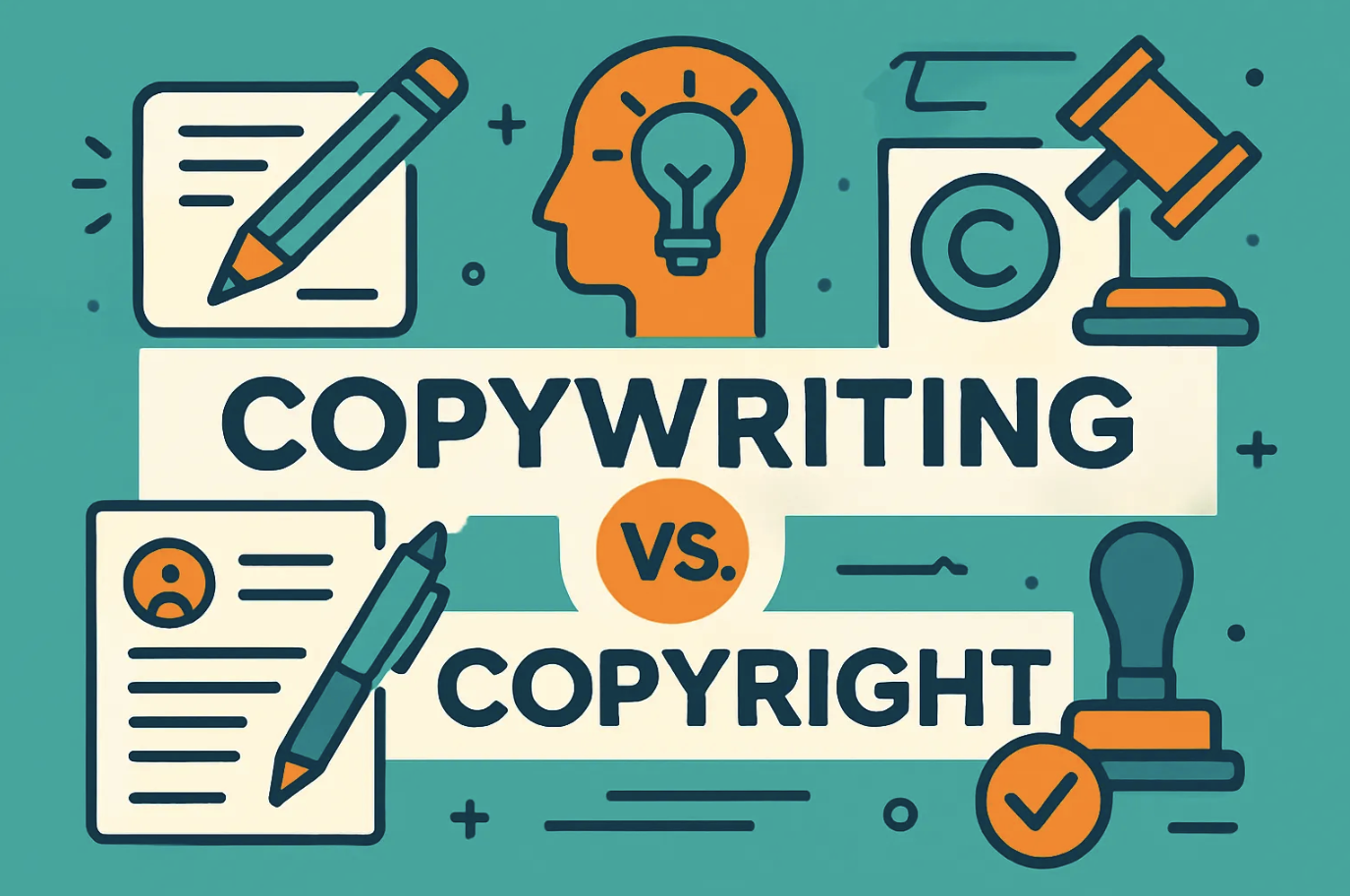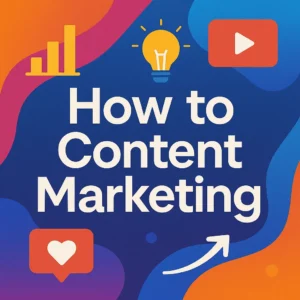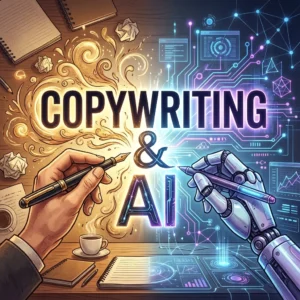
When you hear the terms copywriting vs copyright, it’s easy to mix them up. But they’re worlds apart! Copywriting is about crafting persuasive content that grabs attention and drives action—think ads, social media posts, or website copy. On the other hand, copyright is a legal protection for works like books, music, or art. The key difference? Copywriting focuses on marketing, while copyright ensures your creative work stays yours.
As a business owner or creator, grasping the differences between copywriting and copyright is essential for safeguarding your ideas and conveying your message clearly.
What Is Copywriting?
Definition of Copywriting
Copywriting is the art of writing persuasive text that inspires action. A copywriter crafts words that connect with people, whether in catchy slogans, compelling ads, or engaging social media posts. Copywriting focuses on creating content that grabs attention and motivates readers to take specific steps, like buying a product, signing up for a service, or even just clicking a link. Unlike other forms of writing, it’s not just about storytelling—it’s about driving results.
Purpose of Copywriting
The purpose of copywriting goes beyond just filling up space with words. It’s about communicating value and solving problems for your audience. Writing persuasive marketing content can build trust, spark curiosity, and even create emotional connections. Think about Nike’s famous “Just Do It” campaign. It wasn’t just about selling shoes—it was about inspiring people to push their limits. That’s the power of writing persuasive copy. It turns simple words into tools that influence decisions and shape perceptions.
You need more than just good writing skills to excel in the copywriting industry. Successful copywriters create a wide variety of written material by combining creativity, adaptability, and a deep understanding of their audience. They also rely on skills like attention to detail, SEO knowledge, and the ability to research effectively. These copywriting skills ensure that every piece of content resonates with its target audience.
Examples of Copywriting
Advertisements
Advertisements are one of the most recognizable forms of copywriting. From billboards to TV commercials, they’re designed to grab your attention in seconds. Take Pepsi’s “Is Pepsi OK?” campaign, for example. It cleverly influenced consumer perceptions, making the brand feel relatable and self-aware. Ads like these show how copywriting can make a simple message memorable.
Website Content
Every website you visit relies on copywriting to guide you through its pages. Whether it’s a homepage that introduces a brand or a product page that highlights features, the words you read are carefully crafted to keep you engaged. Copywriting services often focus on creating website content that’s informative and optimized for search engines. This ensures that businesses can attract more visitors while delivering a clear message.
Social Media Posts
Social media posts are another excellent example of how copywriting works. Platforms like Instagram, Twitter, and Facebook thrive on short, impactful messages. A single post can promote a product, share a story, or even spark a conversation. The California Milk Processor Board’s “Got Milk?” campaign is a perfect example. It used simple yet effective copy to create a cultural phenomenon that lasted for decades.
Applications of Copywriting
Marketing and Sales
Copywriting plays a huge role in marketing and sales. It’s the secret sauce behind those ads that make you stop scrolling or those emails that convince you to click “Buy Now.” The job of a copywriter is to craft words that sell. Every content, whether a product description or a promotional email, is crafted to capture attention and inspire action.
Think about the last time you saw an ad that made you curious enough to check out a product. That’s copywriting in action. Businesses often rely on copywriting services to create content that boosts their sales and keeps customers returning.
Brand Building
Building a strong brand isn’t just about having a cool logo or a catchy name. It’s about telling a story that connects with people. Copywriting helps you do that. Through consistent messaging, you can shape how people see your brand. For example, when you think of Apple, words like “innovation” and “simplicity” probably come to mind. That’s no accident. Their copywriting reinforces those ideas in every ad, website, and product launch.
As a copywriter, your words can help businesses stand out in a crowded market and build trust with their audience.
Customer Engagement
Keeping your audience engaged is just as important as getting their attention in the first place. Copywriting helps you maintain that connection. Engaging content keeps your audience interested and involved whether it’s through social media posts, newsletters, or blog articles. Imagine following a brand on Instagram that shares funny, relatable captions. You’re more likely to like, comment, or even share their posts. That’s the power of good copywriting. It turns casual followers into loyal fans who feel connected to your brand.
Key Differences Between Copywriting and Copyright
Nature of Each Concept
Marketing vs Legal Framework
When you think about copywriting vs copyright, the first thing to note is their completely different foundations. Copywriting revolves around marketing. It’s all about creating content that persuades, engages, and drives action. A copywriter’s job is to connect with an audience and inspire action, whether in ads or social media. Copyright operates legally to protect your creative works from unauthorized use. While copywriting sells ideas, copyright keeps those ideas yours.
Skills and Expertise Required
Writing and Creativity for Copywriting
To excel in copywriting, you need a mix of creativity and practical skills. It’s not just about being a good writer—it’s about understanding your audience and communicating effectively. Here’s what makes a great copywriter:
-
Effective communication that resonates with readers.
-
Empathy to understand what your audience wants or needs.
-
The ability to be concise while still delivering a powerful message.
These skills help you craft content that grabs attention and drives results. Whether you’re working for a brand or offering copywriting services, your words need to stand out.
Legal Knowledge for Copyright
Copyright, on the other hand, requires a completely different skill set. You need a solid understanding of intellectual property laws and their application to creative works. Here’s what you’ll need to navigate copyright:
-
Knowledge of plagiarism laws to avoid legal trouble.
-
Expertise in maintaining legal ownership of your creations.
-
The ability to draft or review licensing agreements.
These skills ensure your work stays protected and that you can enforce your rights if someone misuses your content. While copywriting is about creativity, copyright is about safeguarding that creativity.
End Goals
Persuasion and Sales for Copywriting
The ultimate goal of copywriting is to persuade. When it comes to amplifying brand awareness, building consumer trust, or boosting sales, your words should truly inspire action! Remember the last time you clicked on an ad or happily signed up for a newsletter? That’s the amazing power of writing a persuasive text. It’s not only about selling products—it’s all about creating a genuine connection that encourages people to engage with your brand.
Protection of Creative Works for Copyright
Copyright’s goal is entirely different. It’s about protecting your creative works and ensuring you control their use. Copyright gives you the legal tools to prevent unauthorized use, whether it’s a book, a song, or a photograph. It also allows you to monetize your work through licensing and royalties. In short, copyright ensures your efforts are recognized and rewarded.
How Copywriting and Copyright Overlap
Copyright Protection for Copywriting
Originality in Copywriting Content
Copyright protection automatically applies when you create original content as a copywriter, the moment your work takes a tangible form. This means your words, whether in an ad, a blog post, or a social media campaign, are legally yours. But here’s the catch—ownership can shift depending on the circumstances.
For instance, if you’re hired to write copy for a company, the rights to your work might transfer to them once payment is made. This is why it’s essential to clarify ownership terms upfront. It ensures everyone knows who holds the rights to the final product. Copyright laws also protect your work from unauthorized use. If someone copies your ad campaign or website copy without permission, you have the legal right to take action.
This protection safeguards your creativity and ensures others don’t exploit your hard work.
Legal Rights for Marketing Materials
Marketing materials like advertisements, brochures, and website content often fall under copyright protection. As a marketer or business owner, you must understand these legal rights to avoid potential pitfalls. For example, using copyrighted material without permission can lead to legal action. Many people mistakenly believe they can use a portion of someone else’s work without consequences, but that’s not true.
Copyright infringement occurs when there’s substantial similarity, not just exact copying.
To stay safe, always obtain permission from the copyright holder before using their work. Alternatively, you can rely on Fair Use in specific cases, like creating a parody or using excerpts for educational purposes. However, the rules around Fair Use can be tricky, so it’s best to consult an expert when in doubt.
Examples of Overlap
Copyrighted Ad Campaigns
Ad campaigns are a perfect example of how copywriting and copyright overlap. Let’s say you hire a marketing agency to create a campaign for your brand. Once the agency delivers the final product and you pay for it, the ownership of the content typically transfers to you. This allows you to reuse the campaign across different platforms without any legal issues.
However, the contract terms play a crucial role here. If the agreement doesn’t specify ownership transfer, the agency might retain the rights to the work.
Another example involves protecting your ad campaigns from being copied. If a competitor uses your campaign’s unique tagline or design, you can take legal action to stop them. Copyright laws ensure your marketing efforts remain exclusive to your brand.
Website Copy Protected by Copyright Laws
Your website copy is another area where copywriting and copyright intersect. The text on your homepage, product descriptions, and even blog posts are all protected under copyright laws. This means no one can copy and paste your content onto their site without your permission. If they do, you have the right to demand its removal or even pursue legal action.
On the flip side, you must also respect the copyright of others when creating your website. Using someone else’s images, text, or videos without permission can land you in hot water. To avoid this, always use original content or obtain proper licenses for any third-party materials. Understanding how copywriting and copyrights overlap helps you protect your work and avoid legal troubles. It’s a win-win for both creators and businesses.
Understanding the difference between copywriting vs copyright is crucial for anyone involved in marketing or creative work. Copywriting focuses on writing persuasive text to drive sales and build connections. Copyright, on the other hand, protects your original creations, ensuring you retain legal ownership. For businesses, this means safeguarding marketing materials and hiring the right professionals. For creators, it’s about protecting your intellectual property and avoiding legal issues.
Here’s what you should remember:
-
Copyright ensures your creative works remain yours.
-
Copywriting helps you craft messages that sell and engage.
-
Knowing the difference between copywriter vs copyright enables you to protect your work and communicate effectively.


